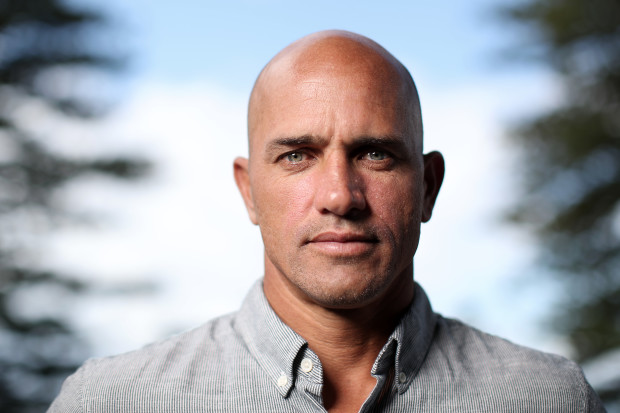Kelly Slater on Mental Health Advocation and Suicide Prevention
[ad_1]

You know surfing legend Kelly Slater for his extraordinary career that’s spanned nearly five decades and included 11 world championships. But beyond his impressive athletic accomplishments, the Florida native has become a vocal advocate for suicide prevention and mental health awareness. In a recent episode of the Men’s Journal Everyday Warrior Podcast, he courageously shares how this issue has impacted those around him and delivers a message of support for those struggling with mental health.
Growing Concerns
During the show, he discusses many heartbreaking losses. “I’ve lost many friends to suicide, more than I can count,” says Slater. “Most of them were guys dealing with stuff they didn’t know how to handle.” While this includes recent tragic losses, Slater recalls a devastating incident from childhood when his older brother’s friend, who was in high school, took his own life.
These stories reflect an increasing concern as suicide rates have steadily increased over the past few decades. This growing epidemic has found fertile ground in a world of unprecedented stress, isolation, and despair.
“It’s hard because there are many different reasons people [commit suicide]; it can be drugs, mental and emotional problems, or feeling like they just don’t have the right person to talk to,” explains Slater.
In the United States, suicide is now the tenth leading cause of death, claiming the lives of approximately 45,000 people annually. Similar trends have been observed in many other parts of the world, making this a global crisis.
Related: How to Find a Therapist
The Warning Signs
Slater emphasizes the significance of recognizing warning signs and providing support. Regularly check in on loved ones and lend an empathetic ear; simply showing you care can make an immense difference.
“Do your best to be nonjudgmental and allow them to talk,” Slater says.
Though not everyone exhibits clear signs, there are often indicators that can alert you to someone’s distress, including:
- Verbal cues and behaviors: Those contemplating suicide may talk about being trapped, express hopelessness, or even discuss death. They may also display severe mood swings, changes in routine, and start giving away prized possessions.
- Social withdrawal: A noticeable retreat from social activities, loss of interest in previously enjoyed activities, or avoidance of friends and family can be warning signs.
- Physical changes: These can include significant changes in eating and sleeping habits, sudden neglect of personal appearance, or increased use of alcohol or drugs.
- Visible Despair: People considering suicide show signs of extreme anxiety or agitation, especially if they feel they have no way out of their situation. Prolonged and unexplained sadness or apathy can also be warning signs.
- Sudden calmness: Sometimes, a sudden sense of calm or happiness after a prolonged depression can indicate that the person has decided to commit suicide.
- Risk-taking behavior: Engaging in reckless activities, seemingly without thinking, can be a red flag.
If you notice any of these signs, take them seriously. Don’t leave the person alone and get professional help. “You have to gather around them and show them there’s a different way,” says Slater. While these signs can guide us, this list is not exhaustive or definitive.
The complexity of mental health means external manifestations can differ significantly from person to person. It’s paramount to foster an environment where open dialogue around mental health is the norm and help is readily accessible to those in need.
Demystifying the Stigma
Throughout the podcast, Slater speaks candidly about his battles with mental health. He reveals that he had experienced episodes of depression and anxiety, particularly after facing career setbacks. Sharing his coping strategies, Slater encourages others to trust their instincts and take time off when necessary. It’s impossible to overstate the importance of prioritizing mental health.
Slater’s willingness to speak openly about this issue is far from the norm. One of the most potent barriers to confronting this crisis is the stigma around mental health and suicide. Discussing mental health remains taboo, a topic swept under the rug and relegated to hushed conversations. This lack of dialogue further isolates those struggling, deterring them from seeking help.
To begin deconstructing this stigma, we must foster an environment of acceptance and understanding. Encourage conversations about mental health within our families, schools, workplaces, and communities. Normalize seeking therapy, taking mental health days, and acknowledging our struggles. It is only through open dialogue that we can chip away at the societal stigma encircling mental health.
By sharing his personal experiences, Slater encourages an openness around a topic that can be uncomfortable to address. While discussing it may seem small compared to the issue, it’s certainly a step in the right direction.
The Road Ahead
As we navigate the complexities of the 21st century, addressing the rising epidemic of suicide isn’t just a public health imperative, it’s a reflection of our shared humanity, a measure of our empathy, and a testament to our capacity for change. Along this theme, Slater touched on the concept of legacy. He reminded listeners that our actions affect others and we must consider how we want to be remembered. He hopes to be recognized as much for his sustainability and social responsibility efforts as for his contributions to surfing.
Let us take inspiration from Slater’s message because the power to turn the tide lies in our collective hands, a responsibility we must shoulder with unwavering resolve.
If you or someone you know is at risk of suicide, contact the National Suicide Prevention Lifeline at 1-800-273-TALK (1-800-273-8255). Help is available 24/7, and counselors are ready to provide support, guidance, and resources. Remember, you are never alone, and there is always hope.
[ad_2]
Source link


